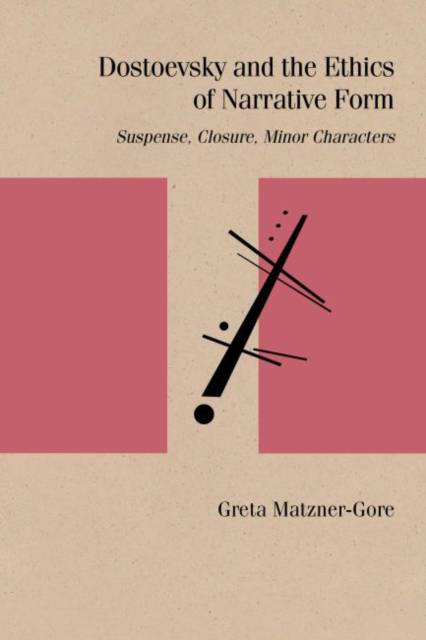
- Afhalen na 1 uur in een winkel met voorraad
- Gratis thuislevering in België vanaf € 30
- Ruim aanbod met 7 miljoen producten
- Afhalen na 1 uur in een winkel met voorraad
- Gratis thuislevering in België vanaf € 30
- Ruim aanbod met 7 miljoen producten
Zoeken
€ 53,45
+ 106 punten
Omschrijving
Three questions of novelistic form preoccupied Fyodor Dostoevsky throughout his career: how to build suspense, how to end a narrative effectively, and how to distribute attention among major and minor characters. For Dostoevsky, these were much more than practical questions about novelistic craft; they were ethical questions as well. Dostoevsky and the Ethics of Narrative Form traces Dostoevsky's indefatigable investigations into the ethical implications of his own formal choices. Drawing on his drafts, notebooks, and writings on aesthetics, Greta Matzner-Gore argues that Dostoevsky wove the moral and formal questions that obsessed him into the fabric of his last three novels: Demons, The Adolescent, and The Brothers Karamazov. In so doing, he anticipated some of the most pressing debates taking place in the study of narrative ethics today.
Specificaties
Betrokkenen
- Auteur(s):
- Uitgeverij:
Inhoud
- Aantal bladzijden:
- 160
- Taal:
- Engels
- Reeks:
Eigenschappen
- Productcode (EAN):
- 9780810141971
- Verschijningsdatum:
- 15/06/2020
- Uitvoering:
- Paperback
- Formaat:
- Trade paperback (VS)
- Afmetingen:
- 157 mm x 226 mm
- Gewicht:
- 226 g

Alleen bij Standaard Boekhandel
+ 106 punten op je klantenkaart van Standaard Boekhandel
Beoordelingen
We publiceren alleen reviews die voldoen aan de voorwaarden voor reviews. Bekijk onze voorwaarden voor reviews.











